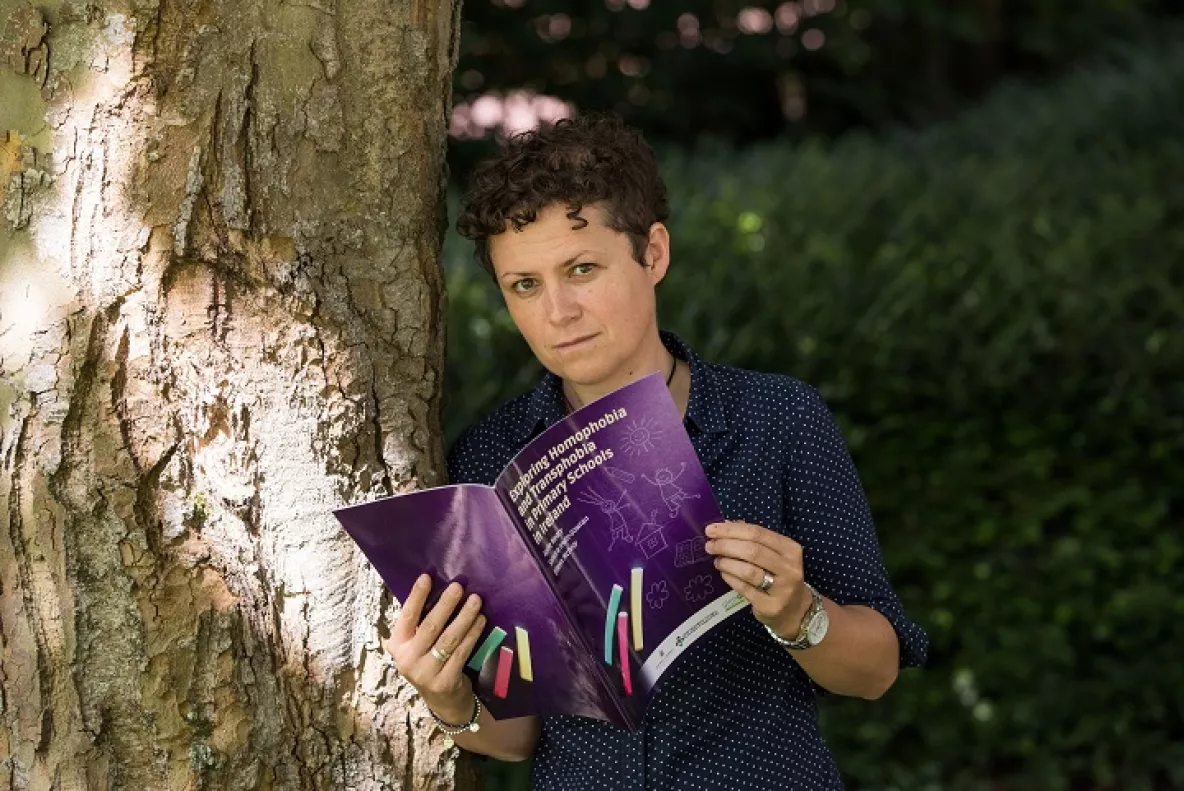
Primary school teachers and principals feel under informed when it comes to preventing and educating about homophobia and transphobia, according to a new report.
Research carried out by Dr Aoife Neary of University of Limerick’s School of Education, in partnership with the Gay and Lesbian Equality Network (GLEN), shows addressing homophobia/transphobia and educating around gender and sexuality identity happens in an ad hoc and mostly reactive manner in primary schools.
The research found that confusion exists among parents, teachers and school leaders around what constituted homophobic and transphobic bullying. The Exploring Homophobia and Transphobia in Primary Schools report states that teacher education and supports are required if this is to be overcome.
The study found that the approach adopted in schools was dependent on the individual comfort, confidence and knowledge of school leaders and teachers in relation to gender and sexuality identity.
According to Dr Neary, author of the Exploring Homophobia and Transphobia in Primary Schools report, “Since 2013, the Department of Education and Skills (DES) has stipulated that all schools must document homophobia and transphobia prevention as well as education strategies. However, this study reveals several factors that make it extremely difficult for schools to meet these requirements”.
“We know that children are learning about gender and sexuality identity in their lives outside school. We also know that children begin to make sense of gender and sexuality identity at a very young age and that many children have family members who are LGBTQI. Yet, these realities are not acknowledged in any way in their everyday lives at school,” she continued.
“The primary schools in this study outlined ‘zero tolerance’ approaches to bullying yet there was much confusion about what constituted homophobic or transphobic bullying or how to educate about gender and sexuality identity in a truly inclusive manner. Teachers and principals often fear the reactions of parents, yet most parents in this study saw education about gender and sexuality identity as entirely possible, underlining the need for a more open dialogue between schools and parents,” Dr Neary added.
According to the report, “simplistic understandings of ‘innocence’ and ‘age appropriateness’ closed down opportunities for education around gender and sexuality identity”. However, dialogue around them opened up the potential for education about gender and sexuality identity in an incremental way.
The report also states, “accounts from several schools revealed norms and practices that did not cater for all children equally. There were deep silences around the existence of LGBTQI people despite an awareness that some children had LGBTQI family members or were themselves beginning to make sense of identifying as LGBTQI”.
Furthermore, the report states that assumptions and uncertainties about religious ethos “reproduced silences and posed challenges” across all primary school types.
The study found that in denominational schools, these uncertainties “legitimised silences around homophobia/transphobia and gender/sexuality identity” while in both denominational and non-denominational schools, “religious teachings on sexuality and gender identity were perceived to be a barrier to the equal inclusion of LGBTQI people”.
Primary schools were not deemed safe or supported spaces for children to talk about their sexuality identity or come out as LGBTQI and restrictive gender norms at school made life particularly difficult for some children”.
The Exploring Homophobia and Transphobia in Primary Schools study was conducted in May and June 2015 with parents, teachers and school leaders across six schools.
According to Dr Neary, “While some useful primary school resources exist, curriculum, policy and resources do not guarantee change. The discomfort and lack of knowledge that many teachers and principals described signal the urgent need for comprehensive pre-service and in-service teacher education and support if all children are to be valued equally. Furthermore, uncertainties regarding religious ethos and teachings around gender/sexuality underscore the need for clarity from school patrons about how exactly their schools are meeting the DES requirements”.
The report states that real change requires “a multifaceted approach that encompasses alterations related to curriculum, resources, teacher education, CPD, parent education, patronage, policy, philosophy and atmosphere”.
It concludes that a necessary component of this would be “open dialogue across all education stakeholders, underpinned by an acceptance that there will always be tensions when engaging with human difference”.
A full copy of the report can be downloaded from {page_1}soedu/node/1771.